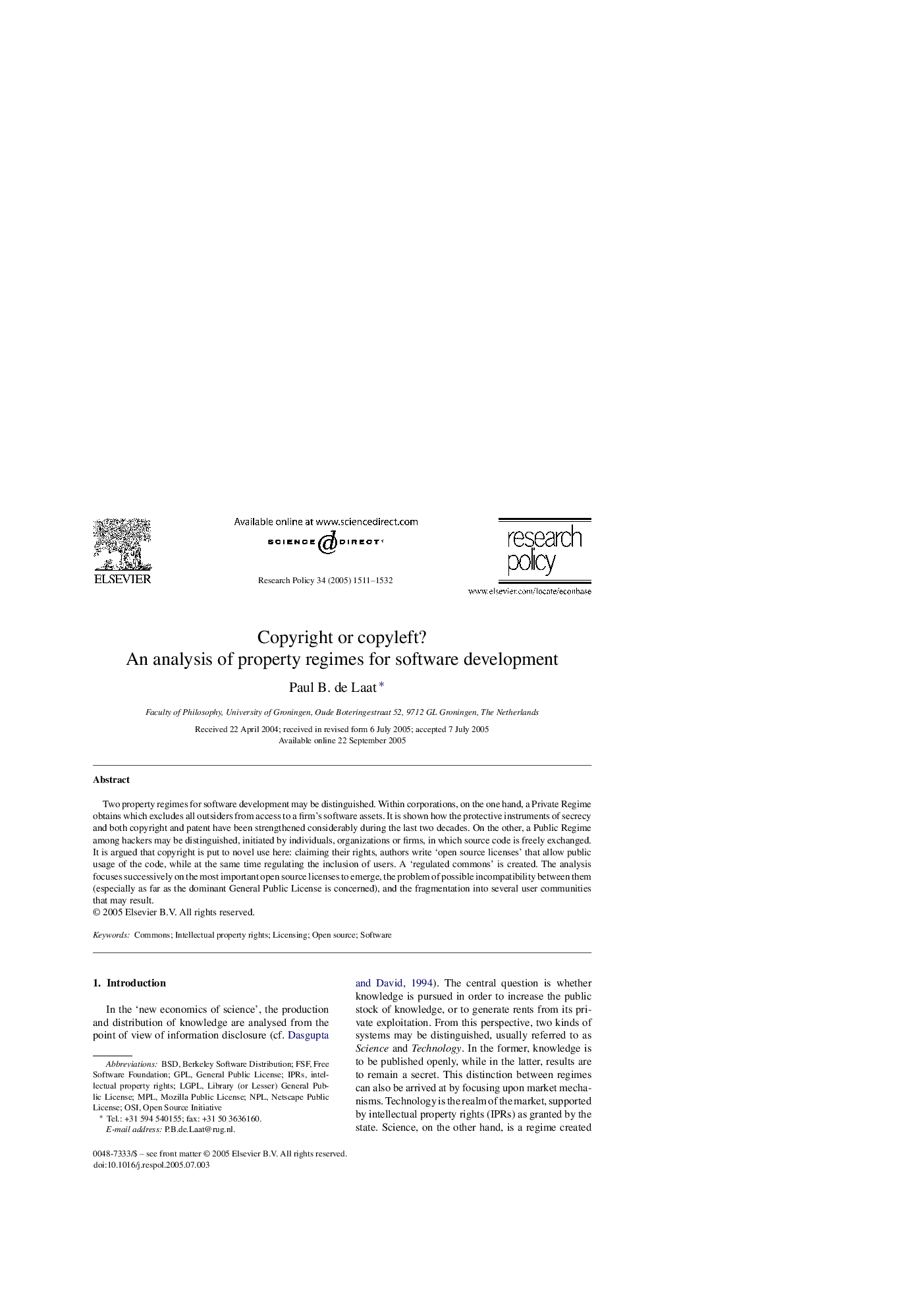| Article ID | Journal | Published Year | Pages | File Type |
|---|---|---|---|---|
| 10483231 | Research Policy | 2005 | 22 Pages |
Abstract
Two property regimes for software development may be distinguished. Within corporations, on the one hand, a Private Regime obtains which excludes all outsiders from access to a firm's software assets. It is shown how the protective instruments of secrecy and both copyright and patent have been strengthened considerably during the last two decades. On the other, a Public Regime among hackers may be distinguished, initiated by individuals, organizations or firms, in which source code is freely exchanged. It is argued that copyright is put to novel use here: claiming their rights, authors write 'open source licenses' that allow public usage of the code, while at the same time regulating the inclusion of users. A 'regulated commons' is created. The analysis focuses successively on the most important open source licenses to emerge, the problem of possible incompatibility between them (especially as far as the dominant General Public License is concerned), and the fragmentation into several user communities that may result.
Related Topics
Social Sciences and Humanities
Business, Management and Accounting
Business and International Management
Authors
Paul B. de Laat,
